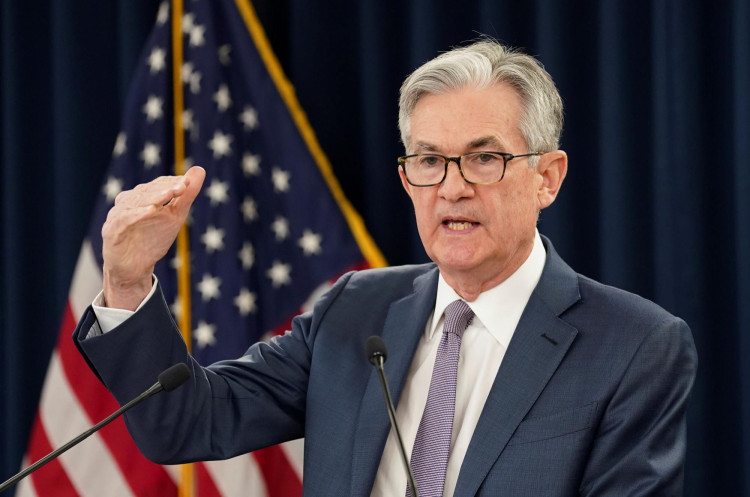Federal Reserve Chair Jerome Powell indicated on Tuesday that recent data suggesting a decline in inflation could strengthen the case for an interest rate cut, signaling potential changes in monetary policy. Speaking before the Senate Banking Committee, Powell noted that while the first quarter data had not supported such confidence, recent inflation readings have shown modest progress.
"Incoming data for the first quarter of this year did not support such greater confidence. The most recent inflation readings, however, have shown some modest further progress, and more good data would strengthen our confidence that inflation is moving sustainably toward 2 percent," Powell said in his prepared remarks.
Powell's testimony marked the beginning of a two-day semi-annual monetary policy report to Congress, with appearances before the House Financial Services Committee scheduled for the following day. He emphasized the delicate balance the Federal Reserve faces between cutting rates too soon, which could reignite inflation, and waiting too long, which could harm economic growth and potentially trigger a recession.
"In light of the progress made both in lowering inflation and in cooling the labor market over the past two years, elevated inflation is not the only risk we face," Powell said. "Reducing policy restraint too late or too little could unduly weaken economic activity and employment."
The Federal Open Market Committee (FOMC) voted in May to hold interest rates steady at a range of 5.25% to 5.5%, the highest level since 2001. While policymakers left the door open to rate cuts later this year, they emphasized the need for "greater confidence" that inflation is decreasing before easing policy.
Recent data provides some evidence that inflation is starting to ease again. The May personal consumption expenditures index showed that inflation had cooled to 2.6% from a high of 7.1%, with core prices, excluding volatile items like food and energy, also climbing 2.6%, the slowest annual rate since March 2021. Powell acknowledged this progress, stating, "After a lack of progress toward our 2 percent inflation objective in the early part of this year, the most recent monthly readings have shown modest further progress."
Investors now anticipate the Fed will begin cutting rates in September or November, with expectations of just two reductions this year-a significant shift from earlier in the year when six rate cuts were anticipated as soon as March. Powell did not push back against these expectations during his testimony or subsequent questioning.
Higher interest rates generally lead to higher borrowing costs for consumers and businesses, which can slow economic activity. This impact has been felt in the housing market, where mortgage rates have surged above 8% for the first time in decades, affecting home equity lines of credit, auto loans, and credit card rates.
Powell also faced questions regarding the state of the U.S. housing market, with Senator Sherrod Brown, D-Ohio, suggesting that the Fed's high interest rates contribute to the housing crisis by keeping mortgage rates elevated. "For housing supply, the best thing that we can do is get inflation under control so that rates can come back down," Powell responded. He added that policies to increase housing supply are within the purview of legislative bodies, not the Federal Reserve.
In his prepared remarks, Powell reiterated concerns about holding rates too high for too long, which could jeopardize economic growth. "At the same time, in light of the progress made both in lowering inflation and in cooling the labor market over the past two years, elevated inflation is not the only risk we face," he said. "Reducing policy restraint too late or too little could unduly weaken economic activity and employment."
The Fed's overnight borrowing rate is currently in a range of 5.25%-5.50%, the highest level in 23 years, following 11 consecutive rate hikes after inflation peaked at its highest level since the early 1980s. Markets expect the Fed to begin cutting rates in September, with another reduction likely by the end of the year. However, FOMC members at their June meeting indicated only one cut might occur.
Powell's testimony comes as Washington remains on edge amid a volatile presidential campaign. Several Democratic committee members urged Powell to lower rates soon to protect jobs. "I'm concerned that if the Fed waits too long to lower rates, the Fed could undo the progress we've made on creating good paying jobs," said Senator Sherrod Brown. "If unemployment trends upward, you must act immediately to protect Americans' jobs."
Powell emphasized the Fed's independence from political pressures, stating the importance of "the operational independence that is needed" for the Fed to perform its duties. Despite recent data showing the unemployment rate creeping higher and broad growth as measured by GDP receding, Powell noted that "the U.S. economy continues to expand at a solid pace" with robust private domestic demand and consumer spending.




